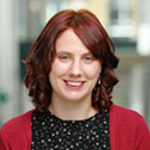
Digital Archives, Built by Students, For Students
Leaving learning resources richer than when we found them.
About this Project
 Beginning in October 2017, University of Hertfordshire students enrolled in the ‘Witch-Bottles to Wishing-Wells: The material culture of everyday ritual’ module were tasked to create a worldwide map of love-lock locations. Using the free, publically-accessible mapping platform Historypin, each student was asked to either pin a photograph and details from the module leader’s collection and/or pin one of their own. 24 love-lock locations were added from three continents, and more will be added with the next cohort in 2018. The aim of this exercise is to demonstrate how widespread this popular ritual has become.
Beginning in October 2017, University of Hertfordshire students enrolled in the ‘Witch-Bottles to Wishing-Wells: The material culture of everyday ritual’ module were tasked to create a worldwide map of love-lock locations. Using the free, publically-accessible mapping platform Historypin, each student was asked to either pin a photograph and details from the module leader’s collection and/or pin one of their own. 24 love-lock locations were added from three continents, and more will be added with the next cohort in 2018. The aim of this exercise is to demonstrate how widespread this popular ritual has become.
Module Aims
If a picture can say a thousand words then what can a physical object tell us? This module considers this question by engaging with the material culture (the physical objects and spaces that shape cultures) of everyday and calendar rituals, from 1650-present. Few people in Britain, both today and in the early modern period, would claim to regularly participate in rituals. However, ritual activities are in fact a large part of everyday domestic and private lives, ranging from the use of bottles in the 18th century to counteract bewitchment, to the blowing out of birthday candles today. Students consider the prevalence of everyday rituals and the value of material culture.
Project Aims
- Become aware of place-based material culture sites as primary sources.
- Learn about effectively documenting place-based artifacts
- Learn to integrate material culture primary sources in your research essays.
Project Outputs
- A Historypin website of Love Lock sites around the world.
- Ian Chowcat, ‘University of Hertfordshire, Inherited Learning: Digital Archives Built by Students for Students’ JISC, (2018).
Software and Primary Sources
This project uses Historypin to archive photos of place-based collections of love locks..
Student Contributors
A number of students in 2017-2018 contributed to this project. They were not asked to give their permission for us to share their names, and so we thank them anonymously.
Project Team
Please direct any correspondence, including takedown requests, to Ceri Houlbrook (c.houlbrook@herts.ac.uk)

Witch-Bottles to Wishing-Wells Project Director
Research Fellow in History
University of Hertfordshire.